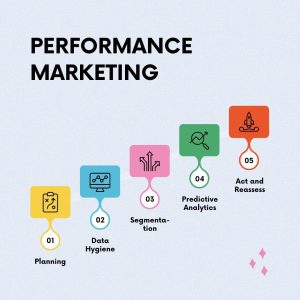Building SEO-Friendly URLs: Best Practices for Structure and Keywords
5 min read
In a massive digital setting, the structure and keywords of your URLs become crucial in getting your website appear on the search results page. SEO-friendly URLs are the pillars of your site’s content being widely accessible to the Internet audience by way of higher search engine rankings.
This article is all about ways to make your URLs not only user, but even search engine friendly! You will get knowledge on areas like, URL clarity, and keyword optimization in this comprehensive guide.
Whether you opt for SEO packages or if you manage your website’s SEO by yourself, these will help you keep your SEO strategy on track. These ways can be easily built into your existing URL structure, or you can take them as a list for creating fresh URLs starting from new. Let’s dive in!
The Importance of a Clear and Succinct URL Structure
A well-defined URL structure helps both search engines and users in terms of getting knowledge about the content on your site. It has to be rich, simple to read, and along the hierarchical line of the pages in your site.
Consider the following example: https://www.example.com/blog/learn-how-to-build-seo-based-urls.
This page address shows that we are on a blog site, and conversely, we are reading an article on the SEO-friendly URL creation.
On the other hand, a URL like https: //www.example.com/blog/article/123456789 might seem hard to grasp and uninteresting for the users and the search engines. The meta tag description will include the page name only, thus making it hard for search engines to effectively crawl and index the page.
Furthermore, some users may not react when seeing such a link because it looks like spam or a phishing attack. It can also by the way of this reduce your website’s click through rate consequently affecting its organic traffic.
Tips to create SEO-friendly URLs
Include your main keywords, but don’t overdo it
Using those main keywords in your URLs is a simple step which should be taken for one to optimize the site for search engines. The principle contributes to outlining your webpage topic not only for users but also for algorithms, which in turn result in a greater chance of your content showing up in relevant search.
Nevertheless, you should be careful, and keyphrases should be used moderately for URLs not to be spammed. You can take digital marketing consultancy services to create SEO-friendly URLs. Using keywords in excess in the URL makes a URL look like spam, which may result in not being clicked by the users and hence, by the search engines may impose penalties.
Focus on creating a natural flow and structure while weaving in and using the most important keyword phrases from your research. Avoid simply cramming the keyword phrases in, instead go for natural language that adds value to your audience and search engines.
Avoid stop words:
Stop words, represented by the words like: “and” “or” “but” “the” and other ones, are the words that search engines tend to disregard during indexation of websites. They don’t give any SEO boost and just clutter up your URLs or make them too long and so these aren’t helpful at all. For reasons of more clear and expressive addresses, omitting stop words is a good option.
While making your URLs, the readers should be in the back of your mind. A URL that is short, relevant, and without stop words arrives at a far perfect destination. This engagement factor is, then, for users and search engines, favoring web pages that deliver a good user experience to visitors. One of the things you can do is to remove stop words; this way, your URL is concise and to the point, improving clarity and, thus, the chance of more accurately matching search queries.
Add dates only when very important:
Dates in URLs can be used as supporting evidence, for instance when the matter is something timely like news or blog posts. Period it brings the topicality of the content into the picture, so that the target audience will rapidly evaluate the interest of the material. For engines to search, dates can help contextualization and recency understanding, presumably leading to an increase in the search result position if it is recent.
Nevertheless, the utmost care should be taken over the content updating frequency because it could diminish its relevance for visitors and cause a decrease in the number of clicks on old content that users associate with “out-dated.”
On the other hand, adding dates may shorten the time during which your URLs remain fresh and relevant. Certainly, if your content is evergreen, which is the definition of the information that does not become outdated over time including a date will anchor this information at a specific time, as a result, it will be seen as irrelevant even though it might be useful.
Keep URLs short:
URLs that are short are not only pleasing to eyes, they are also needed for practical reasons. In essence, the shorter URLs are, the more convenient they get to copy, paste, share on social media or recall. This short length is highly apt for driving user experience, in return leading to more social sharing and engagement with your content. Additionally, short URLs are less clunky and look more professional, boosting your website’s credibility and authority to the users.
The similar preference for short URLs at search engines is also worth mentioning. These features help search engines crawl and index them more precisely, which is good for SEO and your search engine rankings. A short-tail URL that holds the most relevant keywords stands as an indicator to the search engines and users about the page and can perform better in search engine results pages.
Keep the URL simple and readable:
An URL that is simple and has neat design does not only help the user experience but also the search engine optimization (SEO) performance. Through the use of short and crisp language, you will enable both users and search engines to know readily and without further ado what your page is about. This, in turn, can cause indexing to be better and contribute to higher rank in search results, at the end.
Keep away from using complicated jargon, unnecessary characters, or long strings of numbers which could be annoying or and could even confuse the audience. A clear and simple URL that is also not too long is also helpful because it will make it easy to change or update without affecting old links and creating the broken ones.
To summarize, URLs, being short, descriptive, and readable are significant for SEO. Besides the fact that they help create a good user experience, they also can influence your website directly ranking in the search results. Hence the next time you designate a URL for your platform or share a content on social platforms.





